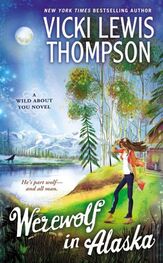When she fucked up, all those years ago, just a little girl terrified into paralysis, she collapsed into the enigma of herself. And I could have done that, but I saw where it led for her. So I still believe in the Great Perhaps, and I can believe in it in spite of having lost her.
Because I will forget her, yes. That which came together will fall apart imperceptibly slowly, and I will forget, but she will forgive my forgetting, just as I forgive her for forgetting me and the Colonel and everyone but herself and her mom in those last moments she spent as a person. I know now that she forgives me for being dumb and scared and doing the dumb and scared thing. I know she forgives me, just as her mother forgives her. And here's how I know: I thought at first that she was just dead. Just darkness. Just a body being eaten by bugs. I thought about her a lot like that, as something's meal. What was her — green eyes, half a smirk, the soft curves of her legs — would soon be nothing, just the bones I never saw. I thought about the slow process of becoming bone and then fossil and then coal that will, in millions of years, be mined by humans of the future, and how they would heat their homes with her, and then she would be smoke billowing out of a smokestack, coating the atmosphere. I still think that, sometimes, think that maybe "the afterlife" is just something we made up to ease the pain of loss, to make our time in the labyrinth bearable. Maybe she was just matter, and matter gets recycled.
But ultimately I do not believe that she was only matter. The rest of her must be recycled, too. I believe now that we are greater than the sum of our parts. If you take Alaska's genetic code and you add her life experiences and the relationships she had with people, and then you take the size and shape of her body, you do not get her. There is something else entirely. There is a part of her greater than the sum of her knowable parts. And that part has to go somewhere, because it cannot be destroyed.
Although no one will ever accuse me of being much of a science student, one thing I learned from science classes is that energy is never created and never destroyed. And if Alaska took her own life, that is the hope I wish I could have given her. Forgetting her mother, failing her mother and her friends and herself — those are awful things, but she did not need to fold into herself and self-destruct. Those awful things are survivable, because we are as indestructible as we believe ourselves to be. When adults say, "Teenagers think they are invincible" with that sly, stupid smile on their faces, they don't know how right they are. We need never be hopeless, because we can never be irreparably broken. We think that we are invincible because we are. We cannot be born, and we cannot die.
Like all energy, we can only change shapes and sizes and manifestations. They forget that when they get old. They get scared of losing and failing. But that part of us greater than the sum of our parts cannot begin and cannot end, and so it cannot fail.
So I know she forgives me, just as I forgive her. Thomas Edison's last words were: "It's very beautiful over there."
I don't know where there is, but I believe it's somewhere, and I hope it's beautiful.
Some last words on last words
Like pudge halter,I am fascinated by last words. For me, it began when I was twelve years old. Reading a history textbook, I came across the dying words of President John Adams: "Thomas Jefferson still survives."
(Incidentally, he didn't. Jefferson had died earlier that same day, July 4, 1826; Jefferson's last words were "This is the Fourth?")
I can't say for sure why I remain interested in last words or why I've never stopped looking for them. It is true that I really loved John Adams's last words when I was twelve. But I also really loved this girl named Whitney.
Most loves don't last. (Whitney sure didn't. I can't even remember her last name.) But some do.
Another thing that I can't say for sure is that all of the last words quoted in this book are definitive. Almost by definition, last words are difficult to verify. Witnesses are emotional, time gets conflated, and the speaker isn't around to clear up any controversy. I have tried to be accurate, but it is not surprising that there is debate over the two central quotes in Looking for Alaska.
SIMON BOLIVAR"How will I ever get out of this labyrinth!"
In reality, "How will I ever get out of this labyrinth!" were probably not Simon Bolivar's last words (although he did, historically, say them). His last words may have been "Jose! Bring the luggage. They do not want us here."
The significant source for "How will I ever get out of this labyrinth!" is also Alaska's source, Gabriel Garcia Marquez's The General in His Labyrinth.
FRANCOIS RABELAIS"I go to seek a Great Perhaps."
Frangois Rabelais is credited with four alternate sets of last words. The Oxford Book of Death cites his last words as: (a) "I go to seek a Great Perhaps"; (b) (after receiving extreme unction) "I am greasing my boots for the last journey"; (c) "Ring down the curtain; the farce is played out"; (d) (wrapping himself in his domino, or hooded cloak) "Beat/ qui in Domino moriuntur." The last one, incidentally, is a pun,* but because the pun is in Latin, it is now rarely quoted. Anyway, I dismiss (d) because it's hard to imagine a dying Frangois Rabelais having the energy to make a physically demanding pun, in Latin, (c) is the most common citation, because it's funny, and everyone's a sucker for funny last words.
I still maintain that Rabelais' last words were "I go to seek a Great Perhaps," partly because Laura Ward's nearly authoritative book Famous Last Words agrees with me, and partly because I believe in them. I was born into Bolivar's labyrinth, and so I must believe in the hope of Rabelais' Great Perhaps.








